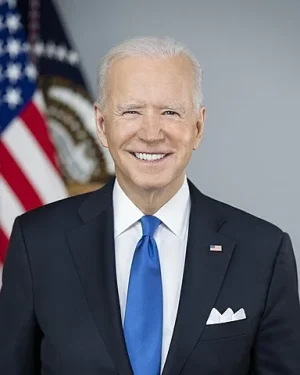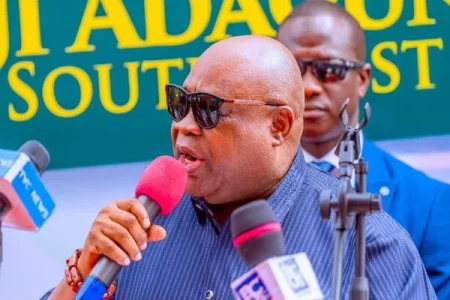
In the recent Michigan primaries, both President Joe Biden and former President Donald Trump secured victories, setting the stage for a highly anticipated rematch. However, early results unveiled some notable challenges for both candidates as a substantial "uncommitted" campaign gained momentum.
Organized by activists discontented with Biden's handling of the war in Gaza, the "uncommitted" movement exceeded the 10,000-vote margin by which Trump won Michigan in 2016. This marked a significant achievement for organizers who aimed to surpass Trump's previous margin, showcasing the influence of their protest effort.
While Trump dominated the first five states in the Republican primary, signs emerged that he faced challenges with influential voter blocs that had favored former U.N. Ambassador Nikki Haley in previous contests. Notably, areas with college towns and suburbs around Detroit and Grand Rapids leaned towards Haley.
The presence of a notable percentage of "uncommitted" voters poses a potential vulnerability for Biden within the Democratic base in Michigan, a critical state for him in the upcoming November general election. Meanwhile, Trump continues to grapple with issues such as underperformance among suburban voters and those with college degrees, along with internal party dissent.
Michigan's significance is further emphasized by its status as the state with the largest concentration of Arab Americans in the nation. The "uncommitted" campaign gained traction among this demographic, fueled by dissatisfaction with Biden's approach to the Israel-Hamas conflict. Efforts to register objections to the death toll in Gaza resonated with voters, with influential figures like Democratic Rep. Rashida Tlaib endorsing the movement.
Despite the attention on "uncommitted" votes, both the White House and Biden campaign engaged in efforts to address concerns within the Arab American community. However, leaders remained unconvinced, emphasizing the need for substantial policy changes rather than mere rhetoric.
As the "uncommitted" votes approached the 15% mark required to qualify for statewide delegates, the movement's impact on the delegate count remained uncertain. Biden, in response, acknowledged the challenges but focused on progress achieved for Michigan voters, cautioning against Trump's agenda.
Trump's victory in Michigan in 2016 by a narrow margin prompted organizers of the "uncommitted" effort to showcase their influence. Dearborn Mayor Abdullah Hammoud emphasized the need for a withdrawal of support for Israel, indicating the movement's dedication to influencing policy.
While Trump remains confident in his prospects for the general election, Haley's campaign views the Michigan results as a warning sign. Despite Trump's dominance in early states, concerns persist, and Haley supporters argue that Trump's presence at the top of the ticket may lead to Republican losses against the socialist left.
As the candidates navigate their paths to the nomination, Michigan serves as a battleground highlighting the complexities and challenges faced by both Trump and Biden in securing crucial voter support.




